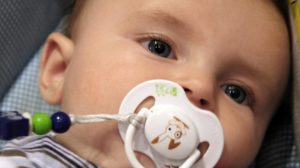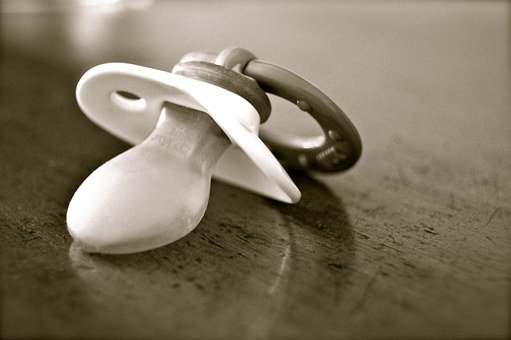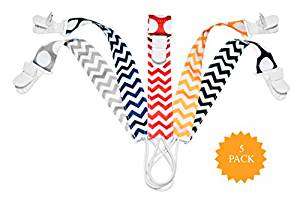
When should my child stop pacifier sucking?
Every parent has one ultimate priority – to comfort our children in every situation. A pacifier is one of these well-known devices designed to soothe children. They are here to help, but sometimes they can disserve us.
Offering comfort is not always easy. Sometimes it needs you to dive into it completely and sometimes it requires only a few moments of attention.
Pediatricians often say that infants and babies have a need to suck something – if not a breast, then a pacifier, a thumb, or a bottle. Pediatricians recommend new mothers to exclusively breastfeed their baby until at least six months of age. After that point, prolonged breastfeeding is healthy as well, and it would bring many benefits to your baby. You can, and should breastfeed if you can, even after you start introducing solid food, until your baby’s first birthday.
When you decide to stop nursing, pacifiers are a good replacement for it. Babies who are used to breastfeeding can become very fussy when they realize that there is no breast to suckle on anymore. Parents find themselves in a position to quickly find a good way to soothe their babies. Using pacifiers in these situations is fine, but overusing it can lead to various problems in your child’s oral development.

There are some situations that simply need assistance from such devices as pacifiers, and simply make life easier for everyone:
- Shorter hospital stays
- Medical issues or transitional periods when children need more comfort than usual
If your child uses a pacifier until the age of three, it is considered to be normal, and it cannot cause problems in its oral development. But, if you let your child use it longer than it is recommended, numerous problems can occur. Your child may develop:
- Protruded front teeth
- Crossbite
- Open bite
- Problems with a roof of the mouth (palate)
- Pacifier teeth
The other risks that come with a use of a pacifier are these:
- Tooth decay – if you dip a pacifier in sugar, honey, or some sweet liquid, there is a good chance for your kid to develop a decay very soon.
- Attaching a pacifier to baby clothes with a ribbon – Using pacifier clips is a habit that can be very dangerous since they can accidentally put it around their neck. Although rare, accidents do happen.

- Using multi-pieced pacifier – small parts can be dangerous for a child to put it in the mouth or a nose. Use a one-piece pacifier to prevent a risk from strangulation.
- Poorly rinsed pacifier – pacifiers can cause many infections if they are not washed regularly. When you wash it, let it dry and put it in a pacifier holder box.
Some parents allow introduction of another habit that is worse – thumb sucking is even harder to break. If you have a child that uses a pacifier, do not offer them a thumb to soothe them instead. It will be even more difficult to break this oral habit, which leads to many more expensive and permanent problems. You can put away a pacifier when you decide to stop using it, but you cannot do this with a finger.
It is not always easy to let the pacifier thumb sucking go. If your child has used it for a couple of years, it will be even harder. Practically, a pacifier becomes his/her best friend. There is an important role in breaking this habit for you as a parent.
At a very beginning, you need to try to explain to your child in plain words why it would be better for him/her to stop using it. Tell them, for example, that they are big now and that pacifiers are only for babies. You have to be patient, to choose the right way and a right moment for a child to let it go. And, as a parent, you know it better than anyone.
Try not to scold them if they don’t listen. It may cause them to be even more bonded to the pacifier than earlier. You need to find a way to motivate you child, instead of the pacifier.
It is a good idea to establish some other habit instead of a pacifier. Reading a book before sleep, or holding his puffy friend at night or during the day sleep is a good replacement. Don’t think that it would be easy. You need to gradually dismiss this device. Otherwise, it can be stressful for your child. However, when you succeed in putting a pacifier away, do not give it back. No matter how they cry, scream and make scenes, if you fold under the pressure, you may end up starting over again.
Whatever you try, be aware that patience is a key to success. Try to find the best solution in your love for your little precious ones.